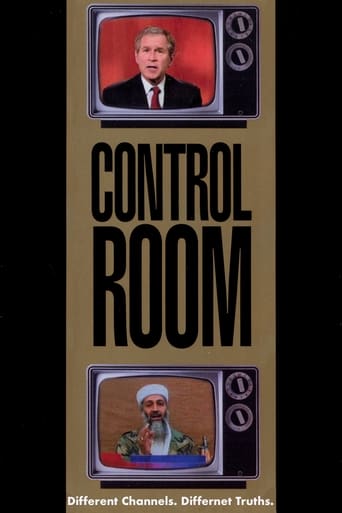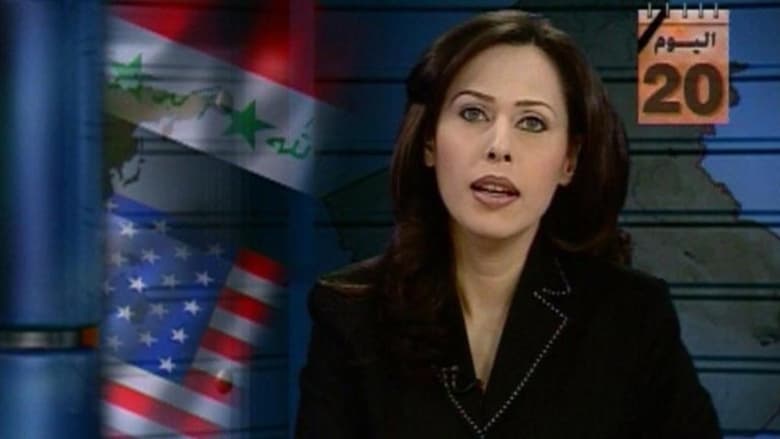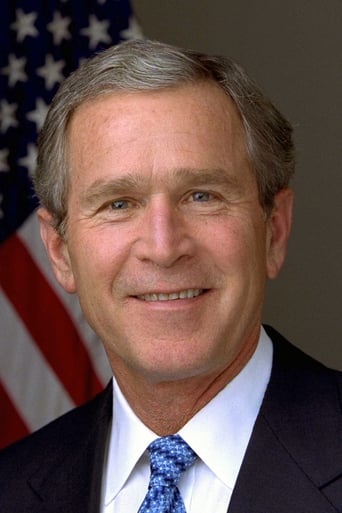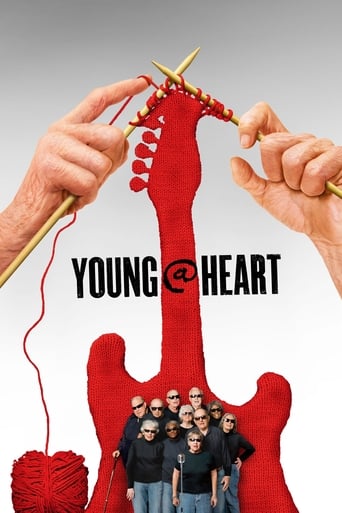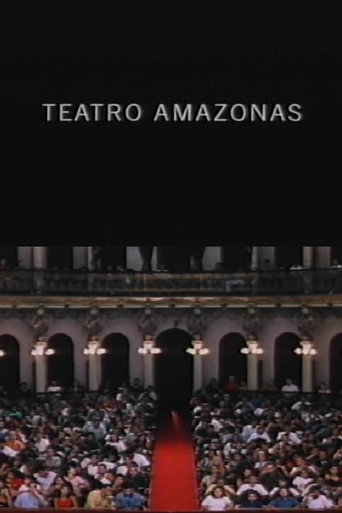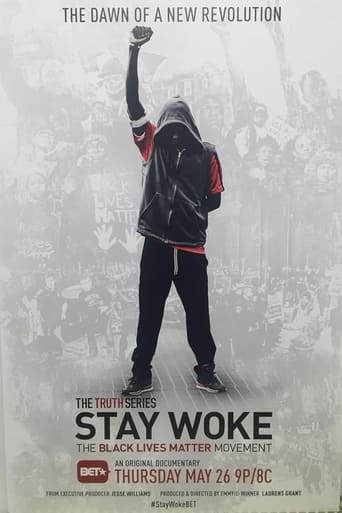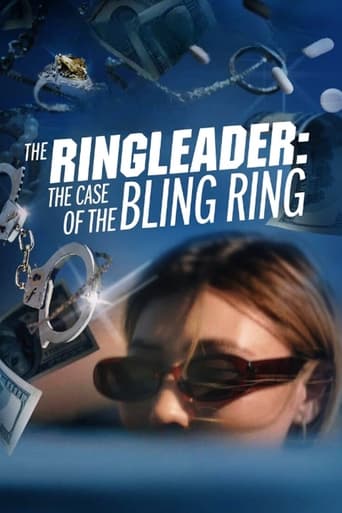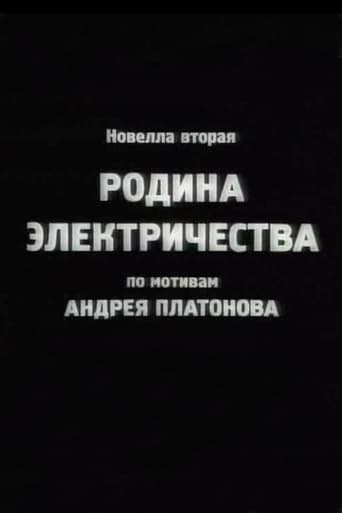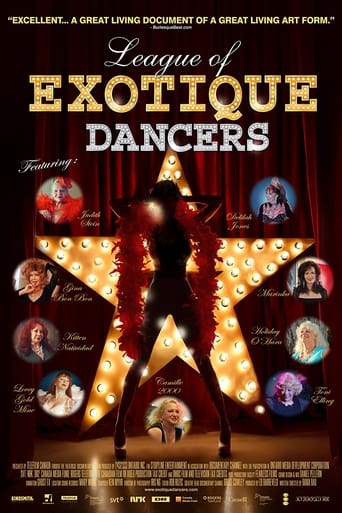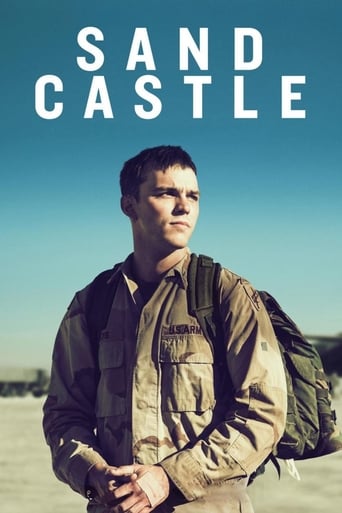Control Room (2004)
A chronicle which provides a rare window into the international perception of the Iraq War, courtesy of Al Jazeera, the Arab world's most popular news outlet. Roundly criticized by Cabinet members and Pentagon officials for reporting with a pro-Iraqi bias, and strongly condemned for frequently airing civilian causalities as well as footage of American POWs, the station has revealed (and continues to show the world) everything about the Iraq War that the Bush administration did not want it to see.
Watch Trailer
Free Trial Channels
Cast
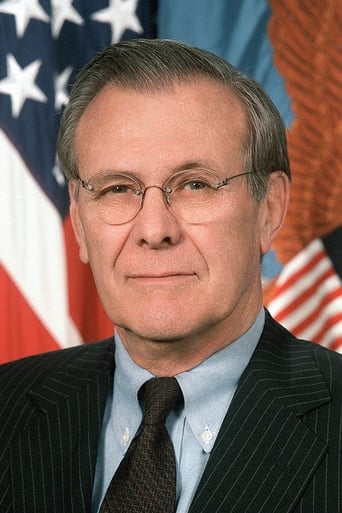


Similar titles
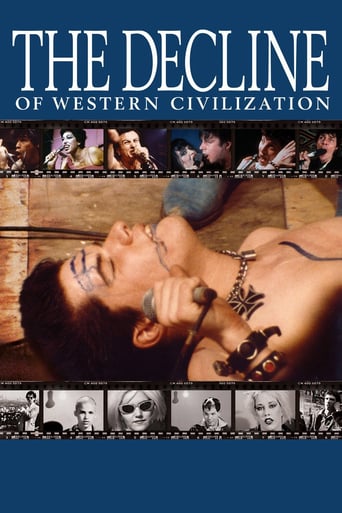
Reviews
Too many fans seem to be blown away
Just so...so bad
Dreadfully Boring
if their story seems completely bonkers, almost like a feverish work of fiction, you ain't heard nothing yet.
The earlier reviews of this film were quite rich and detailed. There is little to add.Except it is now more than three and a half years after the historic span depicted in the film. By coincidence, I viewed this for the first time today, the day after Donald Rumsfeld had to fall on his sword. Mr. Rumsfeld's verbatim remarks in press conferences were included in several key sections of Control Room.I think it is particularly worthwhile to view this now, if one is interested in growing insights into how history really unfolds. I don't think the film will look the same now as it did to many who viewed it (and commented on it) two years ago. It struck me as quite extraordinary. See how it strikes you.
1- NOT at all what it purports to be. 2- Unbalanced. 3- Uses mostly slanted Al Jazeera so-called reporters. 4- Sneaky one-sided political propaganda - the systematic propagation of a doctrine or cause or of information reflecting the views and interests of those advocating such a doctrine or cause.5- I read many of the other reviews on here from those who express their love of this terrible piece and wonder if they have a clue about unbiased journalism...6- It just goes to show that if you want to suck in millions of movie-goers or movie-buyers, just make a one-sided piece, distort the facts as much as possible, and you'll get sales from people who are hungry for any support for their point-of-view. No matter how sloppy and biased the piece may be, you'll get rich using the same method as Michael Moore.
Control Room is an excellent, unbiased documentary about how differently the media portrays the Iraq War depending on which sides they come from. Control Room excellently displays how both the American and the Arab news networks are very different and at the same time, very much alike. Control Room shows the largest and most popular news network in the Arab World, the Al Jazeera Network, in a way not very many Americans have seen before. During the Iraq War, Al Jazeera has been hard at work trying to bring "news" to the rest of the Arab World. Control Room is presented to Americans who have no access to Al Jazeera. The purpose: to inform people the American media censors and filters images to satisfy the patriotic public. Al Jazeera presents news that is contrary to American news. Al Jazeera may present live images of dead American soldiers; Americans may never see as much a coffin. They are two different societies and two very different views on the Iraq War. During the "liberation" of Baghdad American news networks showed a band of liberated Iraqis tearing down Saddam's statue and waving an old Iraqi flag. Al Jazeera claims that his is all staged for the American media to satisfy the American public. Although Al Jazeera and the American news network are contrary to each other, they exist for the sole purpose of satisfying their viewers. Al Jazeera may present dead bodies of American soldiers, but they are only doing it to please their anti-American viewers. Similarly, the American news networks may not show dead American soldiers to please their viewers. Again, during the "liberation" of Baghdad, Americans see Iraqis destroying images of the old regime while Al Jazeera claims that these images were artificial. The media are doing this to please their viewers by showing them what they want to see. The way the author of the documentary chose to present the movie was very unique and ironic. Not a single word was spoken in form of a narrative, but it was a mosaic of interviews and images. It is ironic because Control Room is about the many different perspectives one can have about images, yet the author decided to use images as a narrative. I thought this was a very good use of images because it shows viewers the power of images. Images are so powerful they tell their own story without the need of a traditional narrative. The theme of Control Room ties with David D. Perlmutter's, "Living-Room Wars". Perlmutter's essay is also about the power of images and their effects even on war itself. It can start, stop, or win wars. If Americans were to see the many dead bodies of American soldiers, they would be encouraging their government to stop the war. Using images such as the "liberation" of Baghdad, America can win the support of their people. On the other hand if the Arab World could see the good America is doing, they would not be so anti-American. Overall Control Room is a very informative and entertaining movie. It really does present both sides of the media war well.
In "Living Room Wars," author David D. Perlmutter, a senior fellow of the Reilly Center for Media and Public affairs, claims that the "pretense that we are better informed than ever in history about wars in distant lands is the big lie in the television age." We live in the most powerful country in the world with the most powerful military. However, we have no true understanding of what war really is because we have the benefit of not having to experience it. Our relationship to war is completely mediated by the major media corporations in the United States. What makes "Control Room" worth seeing is that it allows Americans to see another point of view in the Iraq War."Control Room" helps us to see the Iraq War from the perspective of the Al Jazeera Satellite Network, a controversial, popular Arab news network. The main point of the documentary is not to convince viewers that American intervention in Iraq is right or wrong, but instead to get people thinking about the role of the media in shaping our perception and understanding of the Iraq War and whether our opinion is justified based on correct evidence or not. It is no hidden secret that the media, if manipulated correctly, can be a powerful weapon in war. The beginning of the documentary opens with a candid shot of an Al Jazeera Network executive saying that war cannot be waged without the media and that the media should be on the top of the military agenda. Perlmutter also agrees that because of the prevalence of the television, "the military could no longer completely ignore or completely censor the press, yet they would wage war under the assumption that the battle to control the content and captioning of TV pictures was decisive as campaigns in the air, sea, and land." One of the most shocking examples of the power of the media in the documentary was when the US bombed the headquarters of Al Jazeera and another Iraqi television news networks which resulted in the death of one of an Al Jazeera reporter. After the Al Jazeera headquarters was bombed the reporters who worked for them were forced to leave wherever they were because the Iraqi people thought they were "targeted" by the US military and did not want to be put in danger by aiding an American enemy. Obviously, the US military viewed Al Jazeera as a threat or it wouldn't have bombed them in the middle of the city. A US military official said the US spends massive amounts of money to buy precision bombs so they don't make mistakes on what they're bombing. The day after the bombing took place, there were native villagers who gathered to celebrate the liberation of Baghdad. However, interviews with Al Jazeera correspondents suggest that the whole celebration was staged by the US military in order to spur American nationalism. Only the foreign press was there to cover the event because Al Jazeera was forced to leave. This is a powerful example showing how the management of the media can be used fight wars. The images that we tend to see on TV in America are, as Perlmutter says, "limited, homogeneous, and leave out much of the panorama of war." "Control Room" reinforces that idea. Seeing clips from Al Jazeera television stations left me feeling more informed about the war. In the American media, the most we see of war tend to be images of liberation or of tanks rolling across empty land. On Al Jazeera, American troops are seeing busting through people's doors, cussing, and threatening them with guns. That probably happens on a regular basis. War is brutal, but the American media censors those images out and accuses the networks who don't of showing enemy propaganda. However, this is not to say that Al Jazeera is without bias. Each channel caters to their own demographics nationalism. However, as an American, I find myself at a loss trying to understand how we can pride ourselves on spreading democracy and freedoms that come along with that (including freedom of speech), yet exercise such control not only over our own media but the media of the countries we are trying to spread that democracy to as well. The most refreshing (when I say refreshing, I don't necessarily mean pleasant) about "Control Room" is its subtly. "Control Room" engages audiences instead of repulsing them with an over the top opinionated documentary. Perlmutter says one of the dangers about the visual media is that the "words can say one thing, but the pictures could be almost anything." Part of the beauty of "Control Room" is that there is no narration and there are no fancy visual effects. The simple way the documentary was filmed made me feel as if I were right there watching all of the interviews take place. The interviews felt real instead of staged and rehearsed. The director leaves a lot of room for viewer interpretation and opinion. I didn't walk away from the film feeling like I had just been told what's right and what's wrong. Whether you are pro-war or anti-war, you can find something to appreciate in the film.

